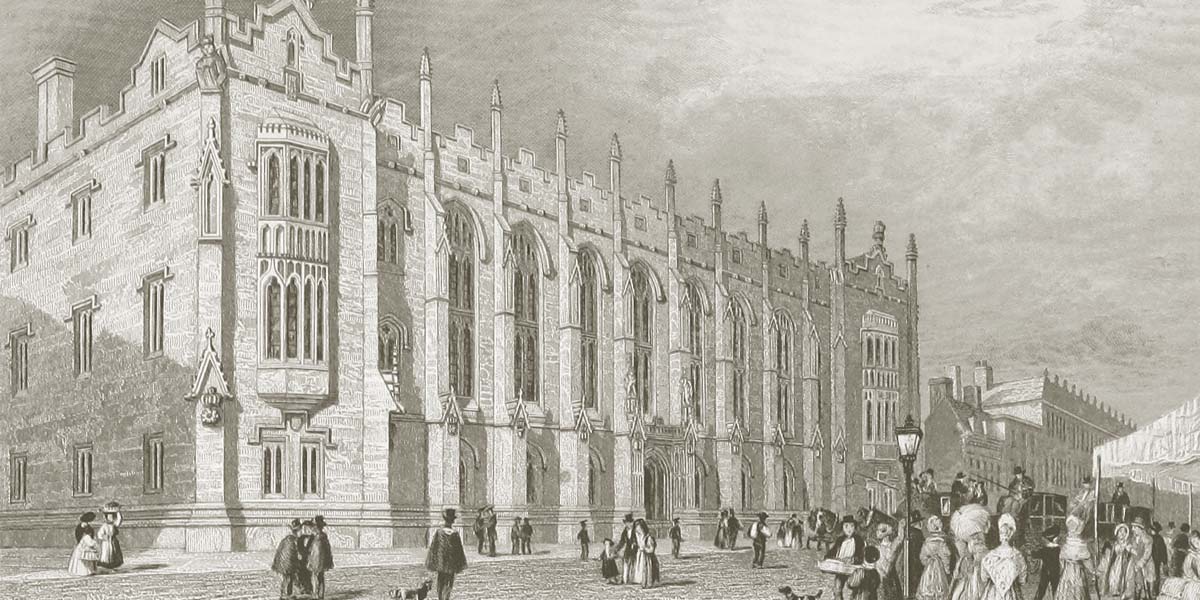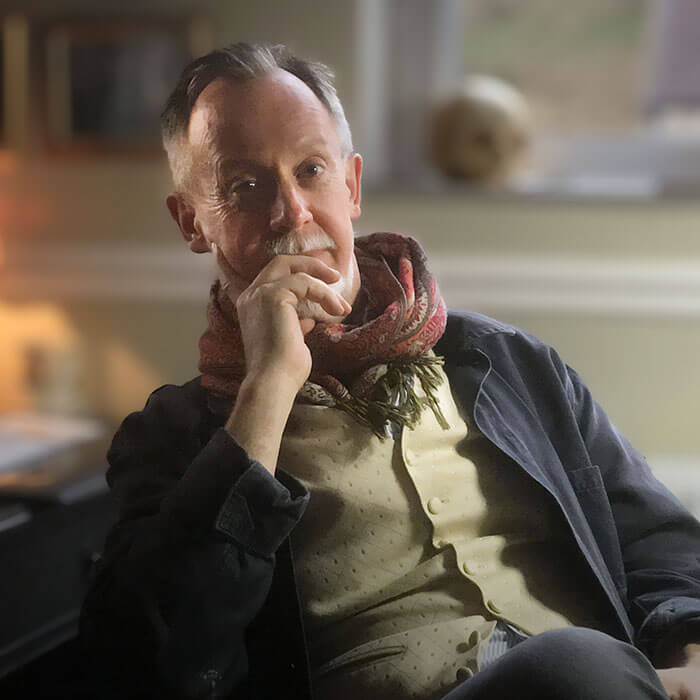Commonly known as JRR Tolkien, John Ronald Reuel Tolkien was born to Arthur and Mabel Tolkien on 3 January 1892 in South Africa. His father had left Birmingham in 1899 for a position with the Bank of Africa, and, after a year of travelling around South Africa, was promoted to a managerial position in Bloemfontein, part of the Orange Free State. Tolkien’s younger brother Hilary was born two years later; however, the brothers only spent a short period of their childhood in South Africa as in March 1895, Mabel took the boys back to Birmingham in England. Arthur was to join them in time for Christmas, but he became seriously ill and died in February 1896. Rather than return to South Africa, Mabel decided to stay with her two children in England, where she rented a cottage in Sarehole, a small Warwickshire village east of Birmingham.
Orphaned at a Young Age
Whilst living in Sarehole, Tolkien gained a place at a prestigious grammar school in central Birmingham called King Edward VI School. To accommodate the eight-mile round trip, which was too far for an eight-year-old boy to undertake each day, the family moved to Birmingham. In April 1904, Mabel was diagnosed with diabetes, a serious and untreatable condition at the time. In November that year, Mabel sadly passed away at the age of 34. She had named Father Francis Morgan, her close friend and religious mentor, as the boys’ guardian in her will.

King Edward’s School, New Street, Birmingham, c.1859.
An Aptitude for Study
Despite his grief at the passing of his mother, Tolkien prospered at school, showing intellectual prowess and taking part in various extra-curricular activities, such as swimming, rugby and drama. He developed a burgeoning talent for languages, studying ancient languages, such as Gothic and Old English, and even took to inventing his own. It was at King Edward VI School where Tolkien became a founding member of the ‘T.C.B.S.’ along with three of his close friends, Rob Gilson, Chris Wiseman and Geoffrey Smith. The initials stood for the ‘Tea Club and Barrovian Society’, with the club first meeting in the school library and later in a café at a nearby department store called Barrows. They would discuss visions for a better world - one they would create together using their individual talents.
A Master of Languages
Just as Tolkien had gained a scholarship at King Edward VI School, in 1911 he was offered a place to study Classics at Exeter College in the University of Oxford. The course entailed studying Latin and Greek, although Germanic philology and the languages of Northern Europe – the languages that had fascinated him since childhood – strongly piqued Tolkien’s interest. In his third year as an undergraduate, Tolkien requested to change his field of study and asked to join the English School. Fortunately, they granted his request, allowing him to maintain the Classical scholarship that provided him with sought-after financial support.

Tolkien (smoking pipe at window) with friends at Exeter College, Oxford, May 1914.
Serving in the Great War
In August 1914, Germany declared war on Britain while Tolkien prepared to start the final year of his undergraduate degree in October. Intent on completing his course, he joined the Officer Training Corps and undertook army training in tandem with the completion of his studies. After sitting his final exams, Tolkien joined the Lancashire Fusiliers in June 1915. Serving as a Second Lieutenant, he went on active duty at the Western Front, enduring four months of trench warfare as part of the Somme offensive. The war claimed the lives of two of his dear schoolfriends and members of the T.C.B.S., Rob Gilson and Geoffrey Smith.
Tolkien contracted trench fever in November 1916, which marked the end of his warfare participation on the continent. He spent the rest of the war in and out of hospital battling the illness, the periods between which saw him undertake training in Staffordshire or light defensive duties on the Yorkshire coast. It was during this period that Tolkien began to write down the first tales of his Elvish mythology and record his invented Elvish languages.
Academic Career
In the wake of the First World War, Tolkien needed to secure employment so he could provide for his young family. He initially undertook a job creating definitions for words starting with the letter ‘w’ in the New English Dictionary (now known as the Oxford English Dictionary), a job he supplemented with a part-time role tutoring English at various Oxford colleges. During this time, the first of Tolkien’s Elvish tales, ‘The Fall of Gondolin’, was read aloud to Exeter College’s Essay Club. In 1920, Tolkien secured a full-time academic post of Reader in English Language at the University of Leeds, becoming the university’s Professor of English Language four years later. Whilst at Leeds, he continued to develop his Elvish mythology in private. He returned to Oxford in 1925, assuming the position of the Rawlinson and Bosworth Professor of Anglo-Saxon, a position he held for the next 20 years before becoming the Merton Professor of English Language and Literature, which he held until his retirement in 1959.

Tolkien and his four children, at home in Oxford, July 1936, a year before The Hobbit was published.
Global Fame and Recognition
Tolkien’s love of languages started as a child and this passion, combined with an interest in Norse and Celtic mythologies, later encouraged him to invent the realm of Middle-earth and its encompassing mythology. He even wrote poetry and created artwork inspired by this world, some of which would feature in his best-known works The Hobbit (1937) and The Lord of the Rings (1954–55), the latter of which garnered Tolkien worldwide fame and is now regarded as the blueprint for modern fantasy fiction. Tolkien died in 1973 and his life’s work that gave a panoptical account of his Elvish mythology, The Silmarillion, remained unpublished. Tolkien’s youngest son, Christopher, edited the work posthumously and it was eventually published in 1977.

